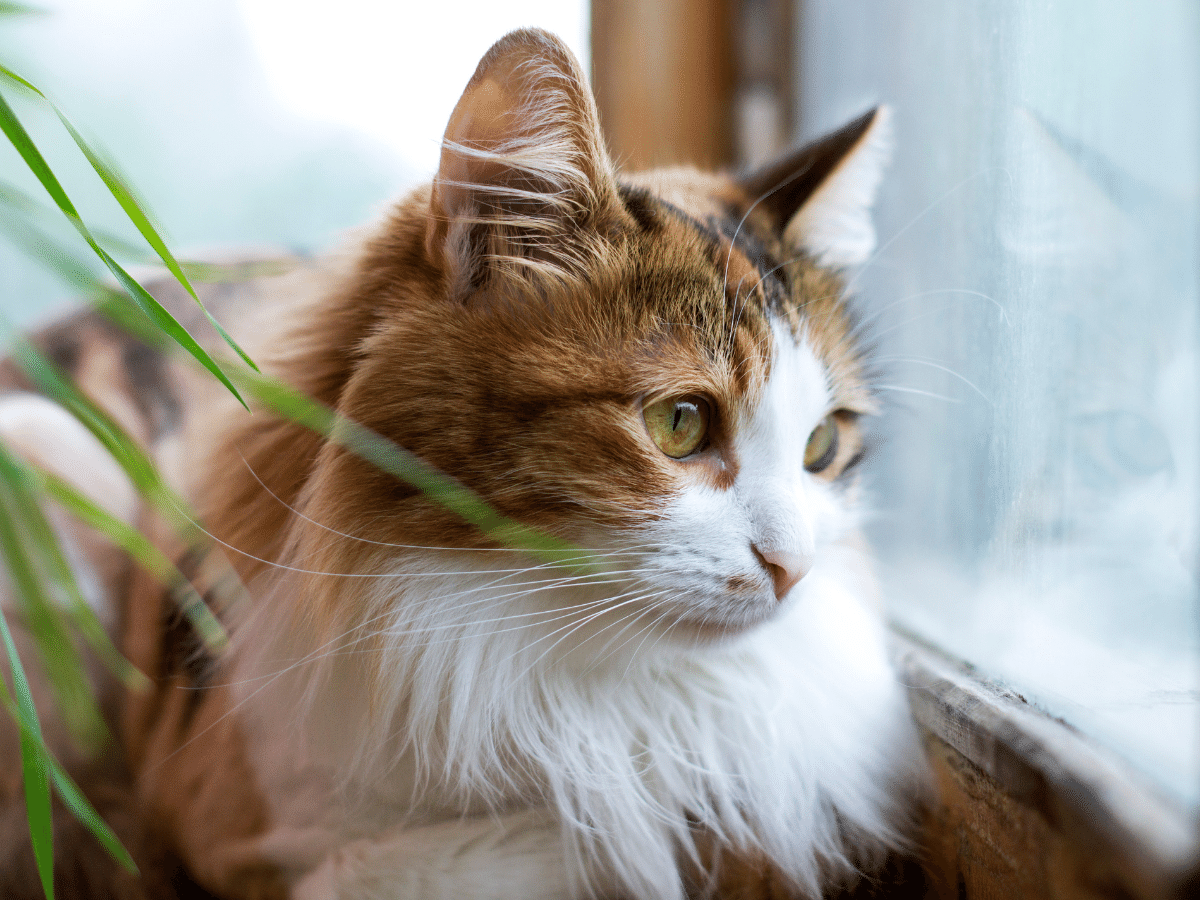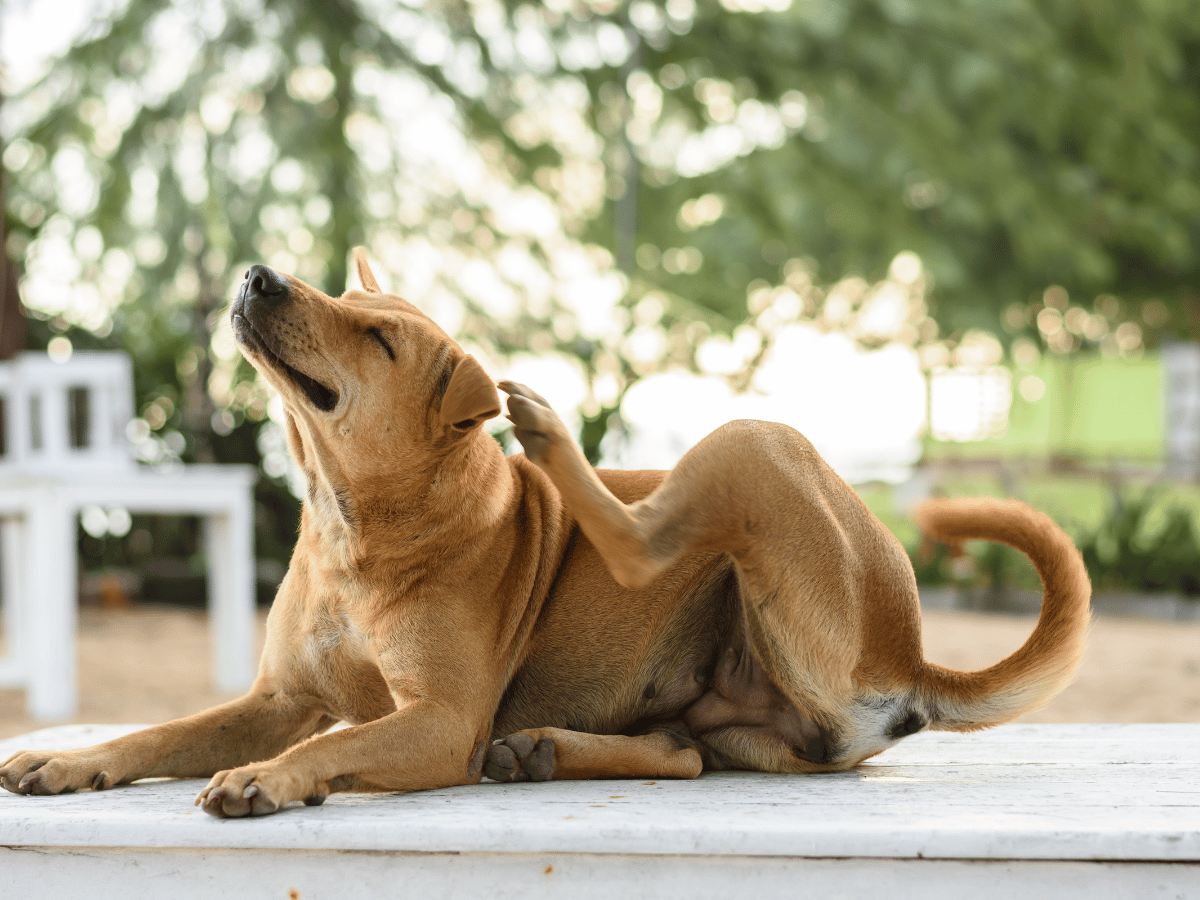
Does Your Cat Have FIV? These Foods and Natural Remedies Offer the Best Support 2025
Finding out that your feline family member has feline immunodeficiency virus (FIV) in cats is certainly alarming.
And while it's not uncommon for most people to immediately turn to conventional medicine to treat this health issue, there are actually natural remedies and treatments you can use to support your cat during this illness.
I'll explain what these natural remedies are in a moment to help you give your four-legged friend the immediate and appropriate attention he needs when FIV (or FIV) strikes unexpectedly.
Why not start by finding out exactly what FIV in cats is?
What is FIV in cats?

FIV in cats—or feline immunodeficiency virus, as it's technically known—is a type of retroviral disease that weakens the immune system. It primarily targets white blood cells, which are a cat's body's first line of defense against infection.
What makes FIV truly unique is that its negative effects on a cat's immune system only become apparent after several years. And when its effects become fully evident, exposure to usually harmless fungi, viruses, and bacteria means serious health problems for your four-legged friend.
Although cases of FIV in cats are observed worldwide, it is still not considered a common health problem since no more than 1-5% of cats have been infected with this disease.
Additionally, FIV in cats has several different strains, some being more aggressive and having a higher transmissibility rate than others.
Now let's see the difference between AIDS in cats and FIV.
What is the difference between AIDS in cats and FIV?

It is important to understand that FIV is a virus, while Acquired Immune Deficiency Syndrome (AIDS) in cats is a medical condition resulting from prolonged FIV infection.
FIV is the initial stage of infection, during which the cat is usually asymptomatic. AIDS, on the other hand, is the final stage of FIV infection, in which the cat's immune system is severely weakened, making the animal susceptible to a variety of infections and diseases.
The FIV virus in cats is closely related to the human immunodeficiency virus (HIV).
Can humans catch FIV from cats?

FIV in cats is a feline-specific virus and cannot be transmitted from cats to humans or vice versa. To clarify, FIV can only be transmitted to other cats.
Next, let's talk about the signs of FIV in cats.
What are the signs of FIV in cats?

Here are common symptoms of feline immunodeficiency virus that you should keep an eye out for:
- Unexplained weight loss
- Recurring skin problems
- Sudden lethargy and loss of appetite
- Isolation and stealth
- Frequent eye inflammation
- Intermittent fever attacks
- Swollen lymph nodes
- Constant episodes of constipation or diarrhea
- Recurring oral health problems
Note that these signs of FIV in cats will usually appear years after the initial infection. Although these symptoms tend to be mild at first, they will gradually worsen over time.
Now let's answer the question: how can a cat get infected with the feline immunodeficiency virus?
How does a cat get FIV?

The most common mode of transmission of FIV in cats is through a bite, where the saliva of the infected feline penetrates deep into the skin of another cat.
The feline immunodeficiency virus becomes active as soon as it manages to lodge in the inner layers of the skin such as the dermis or subcutis. Therefore, unneutered male cats are more vulnerable to this disease due to their generally aggressive and territorial traits.
On the other hand, FIV in cats can also be transmitted from a mother cat to her kittens if she is already infected with the virus during pregnancy. However, this mode of transmission is considered rare.
In addition, transmission of FIV through blood transfusion is also possible, but considered very rare.
There is still no clear evidence whether feline immunodeficiency virus can be transmitted through sexual contact.
Next, let's find out if FIV in cats can be cured.
Can cats be cured of FIV?

The short answer is no, because the consequences of FIV in cats will be permanent once the infection has set in. Since there is no vaccine available for feline immunodeficiency virus, the risk of infection will always be present.
This is an important reason why it is essential to strengthen the overall health of your feline family member's immune system now in order to continue providing them with the quality of life they truly deserve, even with the risk of FIV in cats.
Now let's determine how long cats with FIV can live.
How long do cats with FIV live?

There is no definitive answer regarding the life expectancy of a cat infected with FIV. However, if your four-legged friend does become infected with this disease, it is essential to provide them with the proper nutrition and remedies they need to keep their immune system in optimal condition.
Having good nutrition—especially natural foods rich in antioxidants—helps maintain a cat's immune response, so they'll remain resilient to health issues that may arise along the way.
While we're on the subject, here are the natural foods to give your cat if they have FIV.
Foods and Natural Remedies to Support Cats with FIV

The apple
The apple is a true powerhouse of antioxidants.
According to a study published in the National Center for Biotechnology Information (NCBI) , apples contain a variety of powerful antioxidants that include chlorogenic acid, procyanidin, catechin, coumaric acid, quercetin, and gallic acid, among others.
Researchers have pointed out that while all apples are loaded with antioxidants, their potency tends to diminish when they are processed or cooked. In short, using them fresh is the ideal option.
To use apples as a remedy for your companion with FIV in cats, chop no more than two small pieces and add them to your pet's regular meals.
I also recommend not peeling the apples as most of the quercetin is found in the skin. Just wash the apples thoroughly before preparing them.
Blueberries
Blueberries contain some of the highest levels of antioxidants among berries.
The American Chemical Society (ACS) reveals that blueberries have been found to have the highest cellular antioxidant activity (CAA) among commonly consumed fruits in the United States.
The study also highlights that due to their very high antioxidant content, blueberries can help maintain low levels of oxidative stress and may even ward off the risk of cancer.
If you're looking to use blueberries to support your pet during FIV in cats, mix two to three pieces of these berries into your pet's food each day. Be sure not to add more, as too many blueberries can raise your cat's blood sugar.
Pecans
Pecans are loaded with antioxidants.
The NCBI shares that when it comes to antioxidant content, pecans contain up to 10.6 mmol of antioxidants per 100 grams, which is considered one of the highest levels among commonly consumed foods worldwide.
To use pecans as a remedy for your cat with FIV, finely chop no more than three of these nuts and add them to your pet's meals. Remember not to give them more than three a day, as pecans are high in fat.
Raspberries
Raspberries are rich in antioxidants that promote cardiovascular health.
Another study published in the NCBI highlighted that raspberries are loaded with antioxidants called anthocyanins that help reduce oxidative stress and inflammation. Anthocyanins are considered very beneficial in warding off cardiovascular problems.
It is important to note that heart disease is one of the common problems that occurs when a cat is infected with FIV.
If you are looking to use raspberries as a remedy for your pet with FIV in cats, include no more than two pieces of these berries with your pet's meals per week. Alternatively, they can be given as a special weekly treat.
Strawberries
Strawberries are so rich in antioxidants and they have various health benefits.
In another research highlighted in the NCBI , researchers observe that strawberries are not only rich in anthocyanins, but also other phenolic compounds that help ward off obesity, harmful microbes, inflammation, and diabetes.
The study's proponents even add that these antioxidants may help reduce the risk of cancer.
To use strawberries to support your cat with FIV, cut up half a strawberry and mix it with your pet's food.
Remember to only use strawberries that are predominantly red, as this is a sign that they contain a high level of anthocyanins.
Virgin coconut oil
Virgin coconut oil is an all-purpose source of antioxidants.
According to the IIUM Journal Publication , virgin coconut oil has various beneficial properties. It is antiviral, antibacterial, antifungal, anti-obesity and anti-osteoporosis, not to mention its richness in antioxidants.
If you're looking to use virgin coconut oil to support your pet with FIV in cats, add half a teaspoon of virgin coconut oil to your pet's meals daily. Remember to choose food-grade virgin coconut oil for this use.
While we're on the topic of natural options to consider for supporting your cat with FIV, here's a product you might consider using for your pet's care.
Now, let's address the frequently asked questions or FAQs about FIV in cats.
FAQ

Are feline leukemia (FeLV) and FIV (FIV) in cats the same?
The short answer is no.
FIV and FeLV in cats can be caused by a virus and can also present with similar symptoms, but contrary to popular belief, they are distinct and separate from each other.
One of the main differences between the two is that FeLV often leads to cancers like leukemia and lymphoma.
What happens if a cat with FIV bites you?
Although you may get scratched or cut, there is no chance that you are vulnerable to feline immunodeficiency virus transmission. As mentioned earlier, FIV can only be transmitted to cats, not humans.
Remember to wash and disinfect the bite thoroughly, as other bacteria that can cause infections may be present in your cat's saliva.
Can a cat with FIV live with other cats?
The short answer is no, because no matter how well a cat behaves, there's always a chance it will get into territorial disputes and similar squabbles with its feline neighbors.
Once a cat infected with FIV bites another cat, there is a chance the virus will be transmitted. If your cat has FIV, it is best to keep it the only cat in the house.
Can a cat with FIV go outside?
The short answer is no.
There are two very crucial reasons why a cat with FIV cannot go outside: first, it could be exposed to generally harmless fungi, viruses, and bacteria that can trigger serious health problems for it, and second, it could transmit the virus to other cats.
Conclusion
That concludes this article on foods and natural remedies you can give your feline family member if they have FIV.
I want to point out that caring for a cat with feline immunodeficiency virus can be a little tricky because of the things you need to watch for.
Don't forget that we always offer free recommendations to optimize your pet's health. In addition to receiving advice and recommendations from our Natural Health Advisors, they will also guide you on the products and treatment options that best suit your pet's health needs.

























6 comments
Bonjour Madame Fauvel, Merci d’avoir contacté HomeoAnimo ! Nous allons vous envoyer un email pour aider Gipsy. Nous espérons avoir de vos nouvelles bientôt. Passez une bonne journée !
HomeoAnimo
Bonjour,
J’ai adopté un chat abandonné l’an novembre dernier. Après plusieurs visites chez le vétérinaire, il a le FIV et selon le Vet il a environ 4 ans! Il était très maigre lorsque que je l’ai adopté, mais il
a repris un poids santé. Je lui donne la nourriture recommandé par le Vétérinaire qui
est croquette et pâté pour Gastro-intestinaux.
Malgré tout il a toujours de la diarrhée! Il fait vraiment un dégât et je dois nettoyer ses pattes pour enlever la saleté.
Est ce possible aussi qu’il soit intolérant au poulet, car la nourriture qu’il mange est à base de poulet? Je lui donne aussi un soupçon d’immunocal dans sa nourriture!! Avez-vous des suggestions pour cesser ou améliorer sa situation? Je l’ai nommé Gipsy! Très adorable et on ressens sa gratitude d’être avec nous.
merci bien
Christine Fauvel
Merci Mme Girard de partager avec nous les ennuis de santé de votre chat. Je suis sincèrement désolée pour vous 2 ! Je vais vous répondre en privé, veuillez vérifier vos SPAMS si vous ne voyez pas mon mail. A bientôt !
Homéoanimo
Mon chat a le FIV. Je l’ai adopté il y a 6 mois. Il fait des crises d’épilepsie a cause du FIV. Auriez vous un remède homéopathique pour l’épilepsie causé par le FIV. svp. merci
Micheline Girard
Bonjour Madame Delalande, Merci d’avoir contacté HomeoAnimo! Je viens de vous envoyer une réponse par email pour aider vos 2 chats et leurs symptômes de Sida. Nous espérons avoir de vos nouvelles bientôt. Passez une bonne journée! l’Equipe de Homeoanimo
Homeoanimo
Bonjour,pourriez vous m indiquer ce que je dois donner en homeopathie pour mes 2 chats atteint du sida depuis plus de 10 ans j en ai un qui a un ganglion à la gorge et à du mal à manger à maigri ne miaulait plus cela revient depuis aujourd hui mais ce n est violent…je donne de l argile à boire de la propolis brut lis en poudre dans sa portion d aliment je le fais boire souvent en seringue,je crois qu il sait fait mordre dans le jardin je lui donne pyrogenium ….
Armelle Delalande
Leave a comment
This site is protected by hCaptcha and the hCaptcha Privacy Policy and Terms of Service apply.